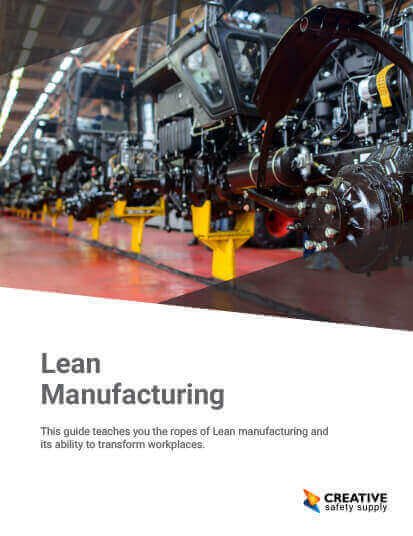
Although Lean principles can be traced back to the 18th century, in order to understand the Lean business model used today you have to look at the relationship between American and Japanese manufacturers.
American business magnate Henry Ford revolutionized the manufacturing production process by developing what he called flow production. Automobiles being manufactured at this time typically required skilled workers to fit parts by hand, facilities were poorly laid out, and workers were operating at different speeds, leading to a considerable amount of waste. Ford spent time experimenting with production methods, quality control, material handling, and layout of the facility to create a production line that was cost-efficient and streamlined. He introduced the concept of interchangeable parts and effectively increased output. With teams of engineers, labor-intensive tasks were eliminated with machines. Ford lined up and grouped machines in order of operation to reduce extra motion and create a smooth workflow. Through trial and error, Ford also found success from standardizing the work and stationing workers on the assembly line.
The concepts developed by Ford radically changed manufacturing in the United States and globally and would go on to influence the Toyota Production System. Eiji Toyoda, Taiichi Ohno, and Shigeo Shingo looked for ways to improve Ford’s ideas of production and remove the limitations of his system, eventually developing the Toyota Production System. Toyota built the system upon principles from Ford and strategies introduced to Japan from American statisticians. For instance, W. Edwards Deming traveled to Japan to teach about his concept of Statistical Process Control which influenced the PDCA cycle. The Training Within Industry service that was developed during World War II and the program was introduced to Japan, effectively inspiring the concept of kaizen. But the Toyota Way was also influenced by traits common in the Japanese culture like the drive for perfection, the value of collectivism, patience, and respect for the people.
Today’s definition of Lean manufacturing certainly differs from TPS, but TPS is seen as the major precursor for Lean manufacturing and the philosophies developed by Toyota can be found in Lean. Because Lean is deeply rooted in Japan’s manufacturing industry and relies on tools developed in Japan, adopting the mindset of the culture can greatly benefit your Lean efforts.
Similar Questions
- Which automobile company initialized Lean manufacturing?
- Who Invented Lean Manufacturing?
- Why is Lean manufacturing called Lean?
- How do I learn Lean Manufacturing?
- What is Lean manufacturing?
- What is the goal of Lean?
- What is the difference between Lean Manufacturing and Six Sigma?
- What is the Definition of Lean Manufacturing?
- How does Lean Manufacturing improve quality?

